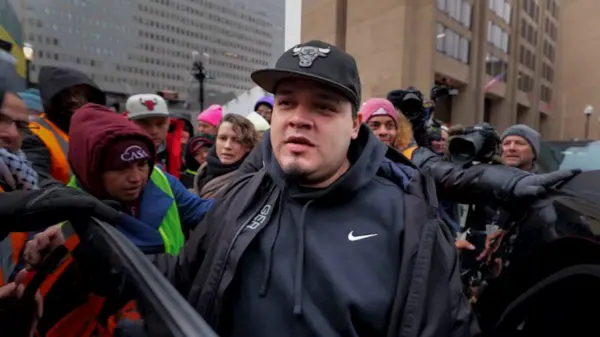Artificial intelligence is poised to drive a significant transformation in employment across banking and other knowledge-based sectors. In an interview on October 10, 2023, with Bloomberg Television, Klarna CEO Sebastian Siemiatkowski highlighted the potential impact of AI, particularly by citing the example of the 8,000 translators employed in Brussels. He noted that many of their tasks could be performed by AI, necessitating only a smaller human workforce for quality assurance.
Siemiatkowski emphasized, “The point is, you don’t need as many as we did. So, there is a massive shift coming.” He acknowledged that while the advent of AI will create new job opportunities, the immediate effects could be detrimental for existing roles, such as those of the translators in Brussels.
Workforce Reduction at Klarna
Over the past two years, Klarna has seen a substantial decrease in its workforce, dropping from 7,400 employees to 3,000. This reduction occurred despite a notable increase in the company’s revenue and customer base. Siemiatkowski explained that the workforce cut was largely achieved through a reduction in recruitment, which helped the company avoid layoffs.
“In the end, our job is here to drive as much value at the best possible price to our customers, and so we need to use these technologies to accomplish that,” he stated. Siemiatkowski believes the implications of AI will extend far beyond Klarna, affecting many sectors reliant on knowledge-based work.
Generational Concerns About AI
Research conducted by PYMNTS highlights growing concerns about AI’s potential to displace jobs. The report titled “Generation AI: Why Gen Z Bets Big and Boomers Hold Back” reveals that 33% of generative AI users worry about job loss due to the technology. Among different age groups, members of Generation Z expressed the highest level of concern at 38%, while Generation X showed the least concern at 29%.
In a commentary on the report, PYMNTS CEO Karen Webster pointed out that the emphasis for many companies has shifted from merely saving time with AI to reinvesting workforce capacities to evolve their business models. “Despite media hype to the contrary, the most sophisticated companies aren’t just asking, ‘How do we save time?’ They’re asking, ‘How do we reinvest our collective workforce capacity to become a different company?’” she noted. Webster suggested that the decrease in workforce needs may create opportunities for those displaced to seek employment elsewhere.
The conversation around AI’s impact on employment is becoming increasingly relevant as businesses navigate the balance between technological advancement and workforce stability. As the financial landscape evolves, stakeholders will need to address the implications of these shifts on society and the economy.







































































